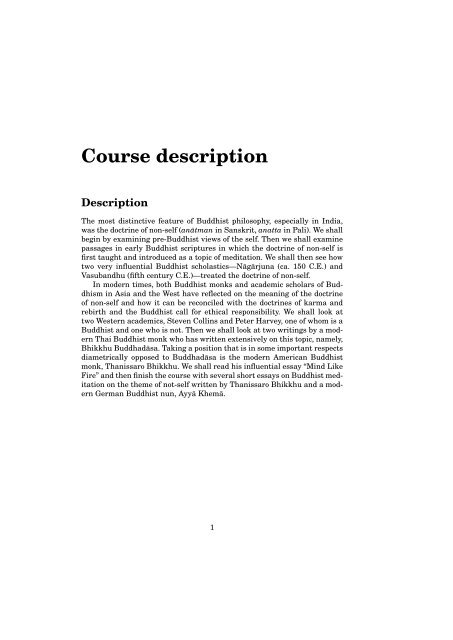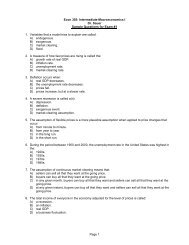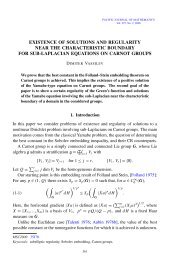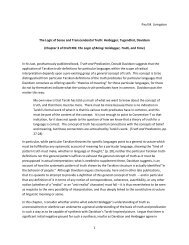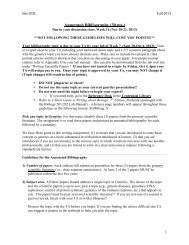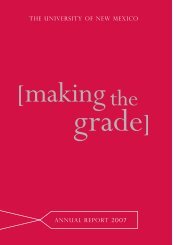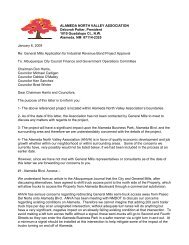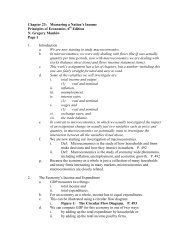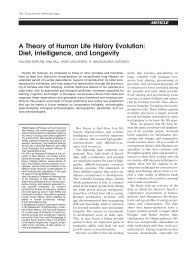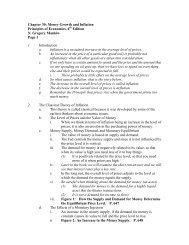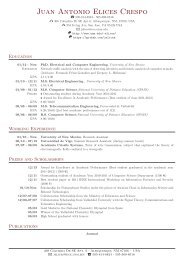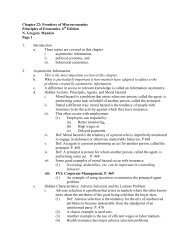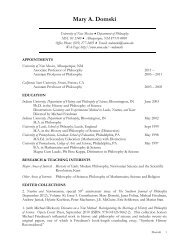Philosophy 438 Indian Buddhist Philosophy Buddhist Views of the ...
Philosophy 438 Indian Buddhist Philosophy Buddhist Views of the ...
Philosophy 438 Indian Buddhist Philosophy Buddhist Views of the ...
You also want an ePaper? Increase the reach of your titles
YUMPU automatically turns print PDFs into web optimized ePapers that Google loves.
Course description<br />
Description<br />
The most distinctive feature <strong>of</strong> <strong>Buddhist</strong> philosophy, especially in India,<br />
was <strong>the</strong> doctrine <strong>of</strong> non-self (anātman in Sanskrit, anatta in Pali). We shall<br />
begin by examining pre-<strong>Buddhist</strong> views <strong>of</strong> <strong>the</strong> self. Then we shall examine<br />
passages in early <strong>Buddhist</strong> scriptures in which <strong>the</strong> doctrine <strong>of</strong> non-self is<br />
first taught and introduced as a topic <strong>of</strong> meditation. We shall <strong>the</strong>n see how<br />
two very influential <strong>Buddhist</strong> scholastics—Nāgārjuna (ca. 150 C.E.) and<br />
Vasubandhu (fifth century C.E.)—treated <strong>the</strong> doctrine <strong>of</strong> non-self.<br />
In modern times, both <strong>Buddhist</strong> monks and academic scholars <strong>of</strong> Buddhism<br />
in Asia and <strong>the</strong> West have reflected on <strong>the</strong> meaning <strong>of</strong> <strong>the</strong> doctrine<br />
<strong>of</strong> non-self and how it can be reconciled with <strong>the</strong> doctrines <strong>of</strong> karma and<br />
rebirth and <strong>the</strong> <strong>Buddhist</strong> call for ethical responsibility. We shall look at<br />
two Western academics, Steven Collins and Peter Harvey, one <strong>of</strong> whom is a<br />
<strong>Buddhist</strong> and one who is not. Then we shall look at two writings by a modern<br />
Thai <strong>Buddhist</strong> monk who has written extensively on this topic, namely,<br />
Bhikkhu Buddhadāsa. Taking a position that is in some important respects<br />
diametrically opposed to Buddhadāsa is <strong>the</strong> modern American <strong>Buddhist</strong><br />
monk, Thanissaro Bhikkhu. We shall read his influential essay “Mind Like<br />
Fire” and <strong>the</strong>n finish <strong>the</strong> course with several short essays on <strong>Buddhist</strong> meditation<br />
on <strong>the</strong> <strong>the</strong>me <strong>of</strong> not-self written by Thanissaro Bhikkhu and a modern<br />
German <strong>Buddhist</strong> nun, Ayyā Khemā.<br />
1


